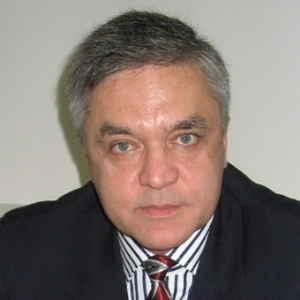Title : Integrating personalized and precision medicine into dermatology clinical practice securing its potential to get skin diseases cured and to revolutionize dermatology
Abstract:
A new systems approach to diseased states and wellness result in a new branch in the healthcare services, namely, personalized and precision medicine (PPM). The latter are both the science of using each patient’s individual genomic landscapes – the genes that are mutated, causing the cancer to grow – to create a biomarker-based targeted therapy protocol. PPM is defined as an approach to disease prevention or treat-ment based on each patient’s genetic makeup and relies on biomarkers. The latter are an integral part of PPM and are defined as indicators of normal or pathological biological processes which can be obtained from tissue or blood. And individualized molecular profiles (uniting genomic and phenotypic ones), skin pathology-related site and other patient characteristics are then potentially used for determining optimum individualized (preventive, prophylactic, canonical and rehabilitative) therapy options to be tailored and applied for. PPM-driven dermatology uses individualized dermatologic disease-directed targeted therapy for the man-agement of dermatoses and for the evaluation and therapy of cutaneous malignancies. For instance, the pathologic diagnosis of a pigmented lesion and determining the prognosis of a malignant melanocytic neoplasm can be enhanced by genomic/transcriptomic analysis.
The other example is psoriasis, when choosing a biologic medication for the disorder often relies on patient preference, provider preference, and a trial-and-error approach. Utilizing PPM-based tests, we can help pro-viders identify biomarkers unique to a patient’s pathophysiology and choose the optimal targeted medica-tion through a targeted and evidence-based approach. Among psoriasis-specific biomarkers and thus modes of targeted therapy, most of the latter discovered and designed focused on anti-TNF and IL12/23, with still few on IL17 (secukinumab). So, PPM-driven treatment in psoriasis would provide excellent outcome mini-mizing the risk of side effects. It would be extremely useful to integrate available scientific knowledge on skin disorders-associated ab-normal genes and gene products and their implications for targeted therapy, and thus data harvesting from different databanks for applications such as prediction and personalization of further treatment to thus pro-vide more tailored measures for the patients resulting in improved patient outcomes, reduced adverse events, and more cost effective use of the latest health care resources including diagnostic (companion ones), preventive and therapeutic (targeted molecular and cellular) etc. The latter requires the incorporation of information from multiple data sources, linking the functional effects of altered genes to potential therapy options into a central repository that can be easily accessed, interpreted, and utilized by physicians and pa-tients.
But! For many dermatological conditions, there is a lack of standardized methodology for quantitatively tracking disease progression and treatment response. And new tools using digital health technology can aid in capturing the variables over time. With these data, machine learning can inform efforts to improve health care by, for example, the identification of high-risk patient groups, optimization of treatment strategies, and prediction of disease outcomes. The advent of PPM in dermatology could lead to a paradigm shift in how patients are treated, with the re-sulting improved clinical outcomes leading to concomitant reductions in wasted healthcare expenditures. And we are entering an era of rapidly evolving transformation in skin pathology-related research as it relates to medical practice, and a shifting paradigm of standardized health care in which detailed genetic and mo-lecular information regarding a patient’s cancer is being used for PPM-based treatments.
Meanwhile, a lack of the medical guidelines has been identified by the majority of responders as the pre-dominant barrier for adoption, indicating a need for the development of best practices and guidelines to support the implementation of PPM in daily dermatology practice! So, coordination of all health care stake-holders has become more important than ever to unite dermatologists, pathologists, immunologists, geneti-cists, and payers to work with Big Pharma and Biotech to develop products, services, and coverage policies that would improve patient outcomes and lower overall health care costs for institutions that put personal-ized regimens in place. This is the reason for developing global scientific, clinical, social, and educational projects in the area of PPM dermatology to elicit the content of the new branch and to stress the impact and benefits of the latter.
Audience Take Away Notes:
- To learn more about the impact of PPM in the daily practice of dermatologists
- To outline individualized strategy for clinical practice of physicians to use PPM resources in their own practice
- For constructing their training lecture of the next step generation
- To define a scope of the ways to overcome barriers stopping down the solvation of the dermatology-related problems



